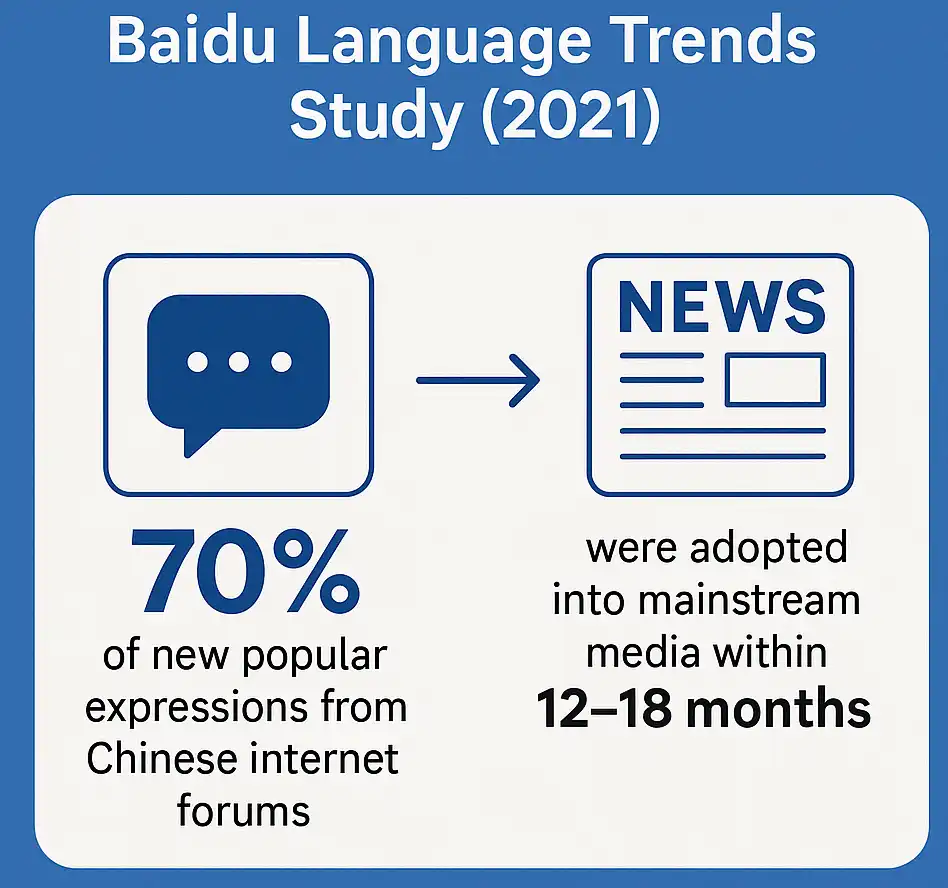Chinese Translators face the challenge of keeping up with a language that evolves fast—with new slang, policy terms, and internet phrases emerging every year. Learn how professional translators stay up-to-date with tech tools, online corpora, real-time social media tracking, and translator communities to ensure culturally relevant and accurate work.
- 1. What Resources Do Chinese Professionals Rely On?
- 2. How Do Translators Verify Meaning and Context?
- 3. What Role Do Communities and Forums Play?
- 4. What About Official Terminology Updates?
- 5. How Do They Retain All This Knowledge?
- 6. Real Example: The Rise of “打工人”
📈 Why the Chinese Language Is Always Changing
Mandarin isn’t static—it morphs. New expressions trend on social media. Government releases updated official terminology. Words take on new meanings. For example, “内卷” (nèijuǎn, originally “involution”) exploded on Weibo to describe toxic competition—something no dictionary could predict.
Chinese evolves faster in urban digital environments, where slang, internet memes, and metaphors quickly blend into mainstream communication. Chinese Translators need to monitor these shifts closely to ensure their work reflects living language rather than outdated textbook terms.
According to a 2023 report by The Commercial Press and Peking University, over 10,000 new Chinese words and phrases were recorded between 2016 and 2022, many of which originated online. These include viral expressions like:
- “躺平” (tǎng píng – to lie flat)
- “内卷” (nèi juǎn – involution, or senseless competition)
- “社恐” (shè kǒng – social anxiety)

🔍 That means a word can go from meme to mainstream in under a year
This downloadable PDF, “Popular Chinese Expressions (2016–2022)”, is your compact guide to understanding the slang and cultural terms that shaped a generation.
As a result, translators must now track both social and official channels, balancing speed with accuracy to stay relevant in sectors like tech, advertising, and youth culture.
🧰 1. What resources do chinese professionals Rely On?
✅ Online Glossaries & Terminology Platforms
- 国家术语资源平台 (CNTERM): The go-to source for official government-approved terminology.
- CNKI: Used to verify academic and technical term usage in real-life publications.
- MOE Dictionary (教育部国语辞典): Tracks usage in Traditional Chinese from Taiwan’s Ministry of Education.
✅ Social Media & News
Chinese translators often monitor platforms like Weibo, WeChat, Zhihu, or news sites like 新华网, since that’s where linguistic shifts start to trend. Many follow linguists or journalists who flag new coinages and meanings.
“Every new tech launch or social movement spawns words overnight. If I’m not on social media, I miss them.” — Jenny L., EN–ZH freelance translator
📚 2. How Do Chinese Translators Verify Meaning and Context?
While platforms like Baidu or Youdao provide fast translations, professionals go deeper:
| Tool/Platform | Function | Link | Examples from Users/Corpus |
|---|
| Sketch Engine | Analyze real-world collocations, frequency, and grammar | Sketch Engine – Chinese Corpora | – 内卷程度 (degree of involution) – 打工人精神 (working-class mindset) – 社恐表现 (signs of social anxiety) |
| Corpus of Contemporary Chinese (中共语料库) | Academic corpus by Peking University with domain filters and style analysis | – 颜值经济 used in fashion/marketing – 佛系青年 in sociology studies – 摆烂 trending post-2020 |
| WeChat / Weibo Search | Real-time slang usage, emotional tone, social trends | Weibo | WeChat (search in-app) | – emo 到极致就是想发朋友圈但又删掉。 – 我已经摆烂了,不改了,就这样吧。 – 恋爱脑真的让人看不下去。 |
As a whole, this process ensures that translators understand not just the meaning—but the connotation and audience impact.
🗣️ 3. What Role Do Communities and Forums Play?
👥 Trusted Communities for Staying Up-to-Date
Trusted communities like ProZ, Douban, Zhihu, and WeChat groups act as sounding boards where Chinese Translators share idioms, validate slang, and debate terminology updates.
| Platform | Description | Link |
|---|
| ProZ Chinese Forums | Public threads where professional translators discuss Chinese language challenges, terminology, and tool usage | Visit ProZ Chinese Forum |
| WeChat Translator Groups | Private, invite-only groups for real-time discussion of slang, idioms, and term validation | 🔒 Invite-only (search “翻译交流群” or ask colleagues for access) |
| Douban | Chinese forum site with in-depth threads on translation, language usage, and cultural nuance | Douban Translation Community |
| Zhihu | Q&A platform like Quora, with expert posts on new expressions, slang usage, and linguistics | Search Zhihu for Language Topics |

These communities serve as real-time sounding boards where translators:
- Ask about idioms
- Share new policy-driven term changes
- Debate which translation fits best in context (e.g., “元宇宙” for “metaverse”)
🔄 4. What About Official Terminology Updates?
Most Chinese Translators maintain personal termbases and translation memories in tools like Trados, MemoQ, or Smartcat. Many also use flashcard apps like Anki or Pleco to keep new slang and expressions fresh.
For those working in legal, medical, or policy-heavy sectors, Chinese Translators must also double-check every update against official termbanks to avoid compliance risks.
Sources:
- Ministry of Education (China)
- Hong Kong Termbank
- White papers from government and state-owned companies
Translators working in regulated industries often set up Google Alerts or RSS feeds to flag when these sites publish updates.
🧠 5. How Do They Retain All This Knowledge?
Personal Termbases
Most translators build and maintain their own translation memory (TM) and glossaries for recurring terms, especially:
- Corporate branding language
- Scientific/medical expressions
- Legal codes and references
Many use tools like:
Flashcard Tools
To absorb and review evolving terms and collocations, tools like Anki, Pleco, or Quizlet come in handy, especially for freelancers juggling multiple fields.
🧩 Real Example: The Rise of “打工人”
This meme term shifted meaning quickly. A literal translation (“working people”) misses the sarcasm. Chinese Translators flagged this early in WeChat groups, offering nuanced alternatives like “wage slave” or “9-to-5 zombie.”
Professional translators flagged this shift early in WeChat groups and suggested alternatives like:
- “9-to-5 zombie” (humorous, informal)
- “grindset worker” (satirical)
- “wage slave” (dark humor)
This showcases how up-to-date knowledge enables nuance, not just accuracy.
Keeping Up Is a Career Investment
Successful Chinese Translators don’t just translate words—they live the language. They commit to daily reading, peer discussion, and cultural immersion to stay sharp. Ultimately, businesses that hire professional Chinese Translators gain more than word-for-word accuracy—they gain cultural insight, adaptability, and market credibility.
💡 What Sets Successful Translators Apart?
They don’t just translate words—they live the language.
They commit to:
- 📖 Daily reading in both source and target languages
- 🗣️ Peer discussion in translator forums and groups
- 🛠️ Smart tool use for real-world verification
- 🌏 Cultural immersion through media, memes, and markets
✨ Next time you see a seamless Chinese-English translation with just the right slang, tone, and nuance… know that behind it are Chinese Translators who never stop learning.
Contact Az-Loc — a trusted team of native experts who combine precision, cultural insight, and cutting-edge tools to bring your message to life across languages.
